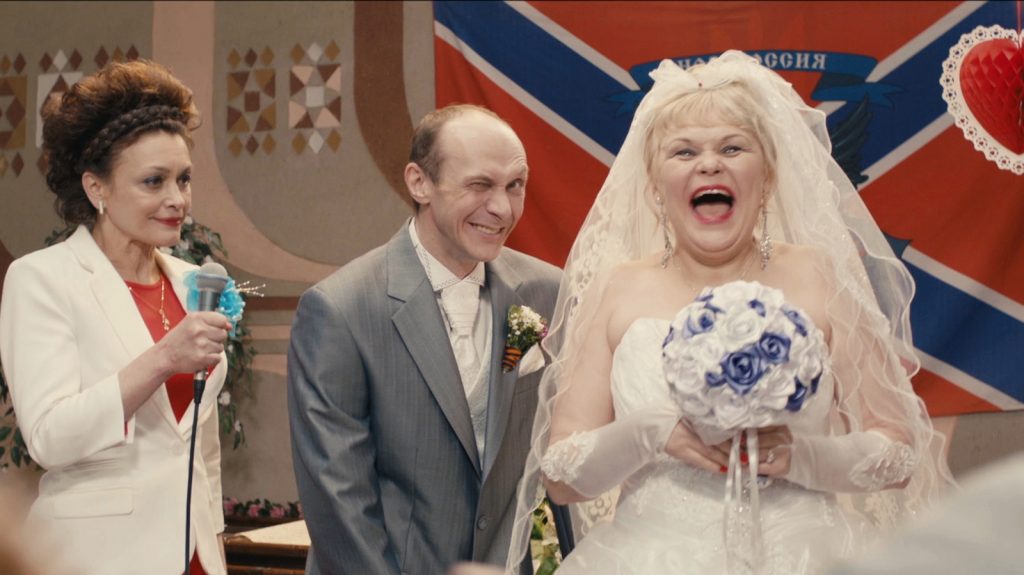Sergei Loznitsa: ”The way we show or write about a story must be beautiful otherwise nobody will remember it”
Sergei Loznitsa is by far one of the most important Eastern-European filmmakers and even though I have seen only two of his four fiction features – Donbass (Un Certain Regard, Cannes 2018) and A Gentle Creature (nominated for Palme D’or, 2017) it was enough to make me interested to find out more about him. So I started reading the interviews he gave, watching his first short films and gathering information. I have discovered a really smart man, profoundly attached to his roots, courageous and faithful to his film crew which he works with from the very beginning. For those of you who don’t know much about Mister Sergei Loznitsa, he worked as a scientist at the Cybernetics Institute in Kiev, where he specialized in artificial intelligence. He studies filmmaking in Moscow and in 2002 makes his debut in feature film with the documentary The Settlement – winner of the Special Mention at KVIFF. The film was the first in a row of acclaimed documentaries at top festivals. In 2007 he makes his debut in fiction films as well. His four fiction films, all filmed by Romanian DOP Oleg Mutu, bring Loznitsa a lot of awards, a confirmation that his talent transcends the documentary filmmaking.
The interview below was taken during Karlovy Vary Film Festival, this year in July, where mister Loznitsa presented his documentary film The Trial and was also part of the Official Competition’s Jury.
Mr Loznitsa, you have made four fiction films so far and lots of documentaries and they all seem to have one thing in common: they tell real life stories about the Russian regime. Do you think films have the power to influence culture and mentalities?
The country has gone through different states in history but something similar exists in all its states. I make films about these similarities that exist but it’s more than a regime, it’s something that was created within the society. I am a part of Russian culture: I was born in Kyev, I have an Ukranian passport and now I live in Germany. I speak Russian and I am a professor in Russian schools. All these influence me and raise my interest in my roots and in finding solutions to some problems.
Do you see it as a responsability?
Of course, every filmmaker has this responsability.
Can violence in a film be beautiful?
Beauty and violence are two different things. But of couse it can be and we have a lot of examples, from Oedip to famous paintings that depict violence in a beautiful way. The topic described can be very disturbing, violent and tragic but the way we show it or write about it must be beautiful otherwise nobody will remember it.
I know you admire Dostoyevski, your feature film A Gentle Creature is inspired by a short story of his. Have you ever thought of adapting one of Dostoievsky’s big titles?
Yes. If someone proposes me to make a film after one of Dostoievsky’s titles I would choose Demons. It is a very important novel not only for Russians.
You’ve been working with Oleg Mutu which is a Romanian cinematographer since your debut in fiction film. How has this collaboration started?
He’s a great camera man so we started from there. We understand each other very well, even without words, and we have a very similar concept on life. We help each other to express. I’m very happy we met in 2009 and I can’t imagine making films with someone else.
Could you imagine yourself directing a comedy?
I can say that all my films have a comedy potential. Donbass has a lot of comic episodes even if they are grotesque. I would love to make a comedy but the urgent matters I’m addressing now are a little bit far from this genre. Maybe later, maybe after the film I’m working at now.

Could you tell me more about this new project?
It’s a documentary film made from archive footage – it’s caled State Funeral, and it’s about Stalin’s funeral. It will probably be ready by the end of the year.
Meanwhile, his film has succesfully went through the stage of post-production and will be launched in cinemas in December. You can find the trailer here.
Film producer and founder of ADFR, she dreamed since she was little of having a magazine one day. Alongside her job as editor-in-chief, she writes the interview of the month. She loves animals, jazz music and films festivals.
